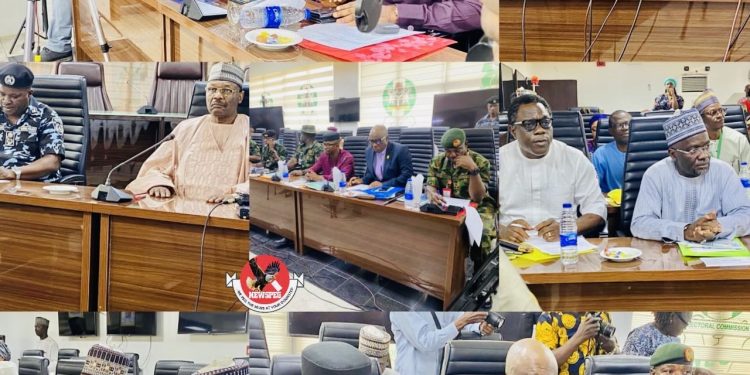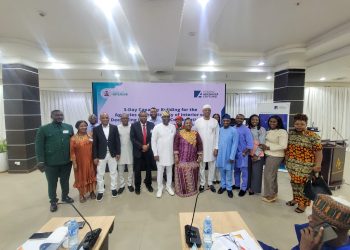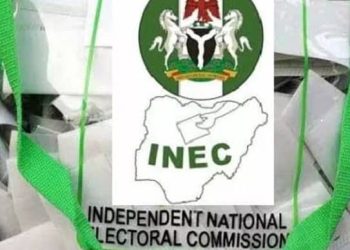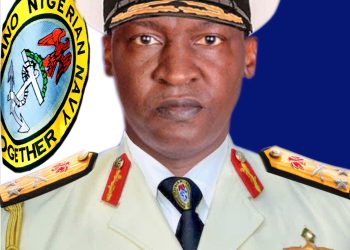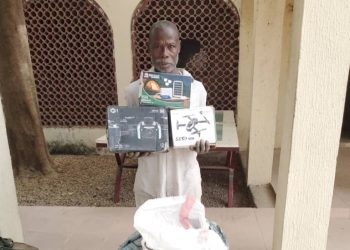By Nkechi Eze
As Nigeria inches closer to a series of critical electoral activities scheduled in the coming months, including the highly anticipated Anambra State Governorship Election and a wave of bye-elections across multiple states, the Independent National Electoral Commission (INEC) has intensified its engagement with security agencies to ensure a safe and conducive environment for the democratic process.
This renewed call for strategic coordination comes in the wake of mounting concerns over emerging security threats, particularly from regions where non-state actors and political violence have disrupted past elections. Recent meetings between INEC and stakeholders, including political parties, civil society organizations, and the media, have highlighted the urgent need for robust security measures to protect electoral personnel, materials, and voters.
Against this backdrop, the INEC Chairman, Professor Mahmood Yakubu, convened the second quarterly meeting of the Inter-Agency Consultative Committee on Election Security (ICCES) at the Commission’s headquarters in Abuja on Friday, June 27, 2025. The meeting brought together top representatives from Nigeria’s security architecture, including military, police, intelligence, and civil protection agencies, in a bid to firm up plans for the months ahead.
Addressing the gathering, Professor Yakubu outlined the Commission’s electoral calendar for the second half of the year, beginning with bye-elections scheduled to take place on Saturday, August 16, 2025. These elections will fill vacant positions in 16 constituencies across 12 states, comprising two senatorial districts, five federal constituencies, and nine state assembly seats. In total, the elections will be conducted across 32 local government areas, 356 electoral wards, and 6,987 polling units. The same date will also feature two court-ordered re-run elections in Enugu South I (Enugu State) and Ghari/Tsanyawa (Kano State), which were previously disrupted by violence.
Professor Yakubu stressed that the bye-elections represent the first in a sequence of major electoral exercises and require extensive security preparation. He expressed confidence in the ability of security agencies to provide adequate coverage but emphasized the need for proactive and intelligence-led planning.
Following the bye-elections, attention will shift to the Anambra State Governorship election scheduled for November 8, 2025. As part of the preparatory phase, INEC will resume the Continuous Voter Registration (CVR) in the state from July 8 to 17, 2025. The CVR will be conducted simultaneously across all 326 wards in the state. The INEC Chairman acknowledged that although the security situation in Anambra has improved compared to the tense environment that preceded the last gubernatorial election, vigilance remains paramount.
He urged security agencies to treat the CVR exercise not only as a test of their readiness but also as an opportunity to fine-tune their operational strategies ahead of the governorship election.
The third major activity on INEC’s calendar is the nationwide resumption of Continuous Voter Registration. Online pre-registration will begin on August 18, 2025, while in-person registration is scheduled to commence on August 25, 2025. The exercise will take place at INEC state and local government offices across Nigeria. The Commission promised to release comprehensive details in the coming days and share the operational plan with security agencies to support adequate deployment and coordination.
Professor Yakubu used the platform to call for swift action on issues raised by stakeholders during recent consultative meetings. These concerns range from the intimidation of voters and polling officials to the unauthorized presence of political thugs at polling stations. He urged security agencies to intensify their surveillance and intelligence-gathering mechanisms to neutralize threats before they escalate.
In a speech delivered by Hassan Y Abdullahi, Director Internal Security, Office of the National Security Adviser on behalf of the National Security Adviser (NSA), Mallam Nuhu Ribadu, the NSA commended INEC’s proactive leadership and emphasized the significance of the elections ahead. He assured that the NSA’s office, in conjunction with all security agencies, will leave no stone unturned in securing the electoral environment. The representative said intelligence operations are already being scaled up, particularly in flashpoints where politically motivated actors may seek to derail the process.
He added that real-time intelligence sharing and preemptive security operations would be central to safeguarding electoral materials and participants, and he warned that the use of violence or coercion to influence the outcome of elections will be met with the full force of the law.
Furthermore, he emphasized the role of dialogue with political actors as a conflict mitigation tool, pointing out that past elections had benefited immensely from stakeholder engagements that helped de-escalate tensions.
As preparations for the 2027 general elections gain momentum, the upcoming elections including the Anambra governorship race and various bye-elections are seen as litmus tests for Nigeria’s commitment to deepening democratic values. The ICCES, jointly chaired by the INEC Chairman and the NSA, remains a critical platform for coordinating all security-related aspects of the electoral process. It provides a unified forum for law enforcement, intelligence, civil defence, and other relevant agencies to align strategies and ensure seamless security operations.
INEC concluded the meeting by reaffirming its dedication to free, fair, peaceful, and credible elections. Professor Yakubu stated that the Commission will continue to work in close partnership with all security agencies and stakeholders to uphold the integrity of Nigeria’s democracy.


